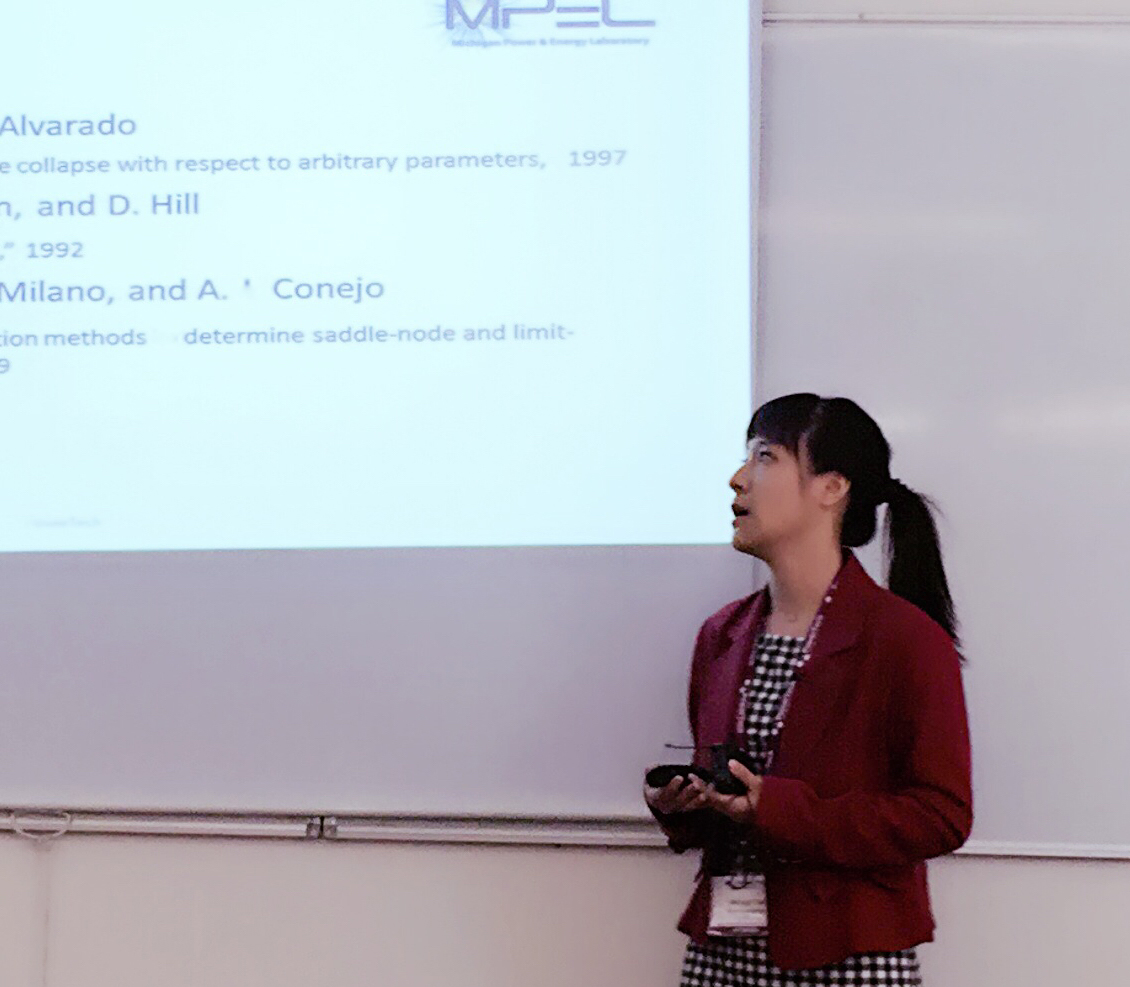Mengqi Yao receives High Quality Paper Award at PowerTech Conference
In recognition of demand response research.

 Enlarge
Enlarge
Mengqi Yao, a University of Michigan PhD student advised by Professor Johanna Mathieu, recently won a High Quality Paper Award at the PowerTech Conference for her paper, “Using demand response to improve power system voltage stability margins.”
Yao researches power system stability and how demand response, as opposed to changing supply during a disruption, can improve this stability. For smooth operation, power grids require the supply of electricity to closely match demand. However, as power generation moves to renewable sources that can fluctuate based on cloudiness or wind speed, more solutions to match supply and demand are needed.
While demand response is already used to help improve power grid frequency stability, Yao analyzes how to use demand response to improve the voltage stability margins of the grid.
“Working on the demand side is really new. While voltage stability questions go back to the 1980s, we now have new renewable sources, as well as demand response,” Yao said. “I’m interested in how these will impact the current power system, and how we can use resources like air conditioners and electric vehicles to better protect our power system.”
To improve the voltage margin in the grid during a disturbance, Yao studies on spatially shifting flexible loads in the system until the supply of electricity can be redispatched. This is done through solving an optimization problem with iterative linear programming to maximize the smallest singular value of a power flow Jacobian matrix.
As opposed to shifting electricity use across time to help demand meet supply, for example delaying the use of an air conditioner, Yao’s solution shifts the electricity use across space, for example increasing the use of an air conditioner in one building while decreasing the use in another.
“While the overall load on the system doesn’t change, this action increases the voltage stability margin of the grid,” Yao explained.
Further research will examine dynamic stability, as opposed to steady-state voltage, which will require even more complex computations and potential algorithm improvements to speed computation time.
Yao previously studied power systems while earning her bachelor’s degree at Shanghai Jiao Tong University. She earned her master’s degree from U-M in electrical engineering in 2016.
 MENU
MENU 
